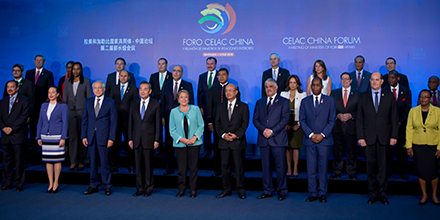
This article was originally published by the Foreign Policy Research Institute (FPRI) in January 2019.
China’s One Belt One Road (OBOR) project was late in coming to Latin America and the Caribbean (LAC). First announced by President Xi Jinping in 2013, OBOR, later renamed the Belt and Road Initiative (BRI), did not arrive in the LAC until 2018, when, at a meeting of the China-CELAC (Community of Latin America and the Caribbean) Chinese Foreign Minister Wang Yi claimed that BRI would “inject new energy into the China-CELAC comprehensive cooperative partnership and open up new prospects.” Given the impressive rise of the People’s Republic of China to the world’s second largest economy—first, by some measures—and the difficulties that many LAC countries were experiencing, it is hardly surprising that Wang’s offer was greeted with enthusiasm. If brought to completion, the integration of the LAC region into BRI would comprise 65 percent of the world’s population and 40 percent of global GDP.
